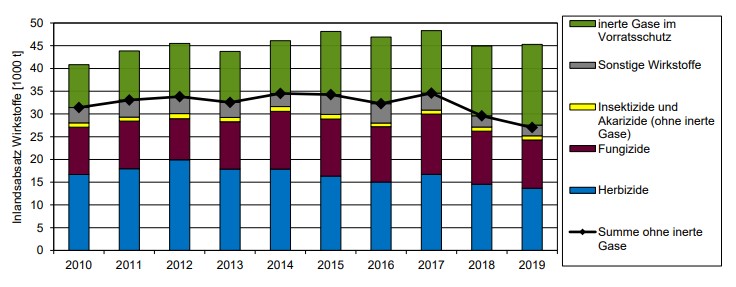They say that the drop in pesticide usage is not good enough. Greenpeace, Friends of the Earth Germany, and Pesticide Action Network Germany all say the reductions could be related to weather and that the government needs to implement more Draconian methods against farmers - unless they are organic farmers.
But that is not a valid scientific position. Copper sulfate, the older, less effective pesticide still considered organic, does not work as well, which means it requires far more in the way of application. If government data included pesticide load per area, it would show that the reduction in Germany would have been far greater if organic farming were not a government-subsidized industry. It is quite literally the case that the increase in organic farming in Germany has held back Germany's commitment to pesticide reduction.

The other thing that has made the difference is greater reliance on imports from Russia. Once Russia began to put organic labels on everything - like their supposed COVID-19 vaccine, there is no evidence Russian organic food is organic and the laws of physics say it likely is not - Germany began to import more. So their domestic food can be more of the "organic" manufacturing process, provided they are willing to turn over a strategic resource like food to their historical enemy.
Activists should not 'make the perfect the enemy of the good' but this new salvo, saying reductions exceeding targets are still not enough, show this is more about raising money than it is helping the environment.




Comments